A solar panel is a device installed on a rooftop, pole or ground to capture sunlight & convert it into electricity. It is basically a plate of cells which have a strong tendency to capture light. The cells work together and ensure the maximum amount of the available solar energy is captured and converted into electricity. The device is connected with a solar inverter battery system to store DC electricity and convert it into AC form to run electrical appliances.

What Are The Components Of A Solar Panel?
A solar panel as such looks a very simple device but its structure is very complex. A solar panel module comprises of solar cells, EVA, glass, a back sheet and a frame. And solar panels are of three types, monocrystalline, polycrystalline and thin film solar panels. Cells can be made of mono silicon, amorphous or polysilicon. The first two are manufactured more or less in a similar way.

How are Solar Panels Made?
The below given is the process of producing a crystalline type of solar panel.

Step 1: Sand
First of all, convert sand into high-grade silicon comes at a high cost. It involves an energy-intensive process.
Step 2: Ingots
The silicone is formed in the form of solid rocks which are melted together at a very high temperature to form ingots. Ingots are in the shape of a cylinder but you can convert them into any desired shape. All atoms are aligned with the desired structure. Boron is later added, which gives the silicone positive polarity.
Monocrystalline solar panel cells are produced from a single crystal of silicon. They have high efficiency in converting sun energy into solar power. Hence their price is higher.
Step 3: Wafers
The next step is the manufacturing of wafers. The ingot is sliced into very thin disks, called wafers. A wire is used for the precision cutting. The thinness of a wafer should be that of a paper. And anti reflective coating should be applied to reduce reflection from the shiny silicon surface.
Step 4: Solar Cells
The next phase is to convert a wafer into a real solar cell which is capable of converting solar energy into electricity. Metal conductors are added to wafers which give it grid-like matrix. The coating facilitates the absorption of sunlight, rather than reflecting it. A layer of phosphorous is diffused over wafers just to give it negative polarity. This way a positive-negative junction, is created which is essential for the proper function of a solar panel.
Step 5: Cell to Panel
The cells are joined together with the help of metal connectors. 48 cell panels are considered suitable for small homes. And 60-cell panels are the standard size. While as 72-cell panels are meant for large-scale installations. The front side is covered by glass and back by a durable material. Then a junction box is added to enable connections. Then the structure is assembled in a frame and glued by EVA to bind everything together.
How are Solar Panels Installed?
The installation of solar panels is done in seven phases. The phases are as given below:

- For protecting wiring, bury a Tube (conduit) to get the wires through it. Then build a concrete platform to support solar panels. Solar panels can be installed on a roof, ground or pole.
- Once a platform is created then use solar panels of required wattage to create an array. Then connect sealed batteries to store power generated by the panels. And finally, a powerful inverter and a charge controller in the garage adjacent to the standard electrical box.
- Use angle brackets at the mounting points, and mount front feet first. Then square the feet & secure them into place.
- Understand wire Connections and connect cables to the control panels and then ground it to prevent short circuit and faults.
See here solar Installation video
How Are Solar Panels Used?

Solar panels are usually connected to an inverter battery system but in case of Grid-tie solar inverters, they are only connected to the solar inverter, not a Battery. The DC Power from the solar panels runs down into battery. The charge is controlled and managed by a solar charge controller. From the battery, the power runs down into the inverter which converts it to run AC appliances.
Which Type of Solar Panel to Go For Your Home Or Business
Solar panels are of three types, Monocrystalline, Polycrystalline and thin film solar panels. If you are confused which type of solar panel for home or business you should go for, and then read this information?

The efficiency and cost of solar panel will depend largely on how pure material is used in its manufacturing. Monocrystalline solar panels are made of highly pure silicon panel, hence their efficiency is also good. Moreover, the efficiency also depends on size, shape, orientation, angle and peak sun hours.
Buy Solar Panels for home or office
Which Solar Panel Should I Buy?
You should prefer to buy monocrystalline solar panels because they are made of highly pure silicon. And you should first assess your power requirement of your home or business and then select panels accordingly.
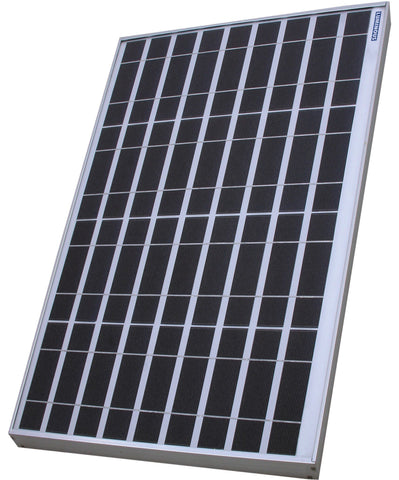
Buy Solar Panels for home or office
Which Solar Panel Should I Use For Home?

For a load of 1KV, you will need 1 KW solar panel. You should prefer high than 1 km to compensate system loss. The efficiency will also depend on the size and performance of inverter battery system. Luminous Solar Panel 250 Watt 24V Solar Panels is best for home use.
Buy Solar Panels for home or office
Where To Buy Solar Panels For Home?
You Should Buy Solar Panels From A Legitimate Brand Whose Products Are Very Popular Among Customers Just Like Luminous. The Brand Should Be Experienced and Expertise in the Field of Solar Energy and Power Generation.
Buy Solar Panels for home
Which Solar Panels, Solarcity Uses?

SolarCity uses solar panels of very high wattage to produce more power for local use and consumer distribution.
Why Are Solar Panels Faced South?

Solar panel experts suggest people, face the solar panels towards the south to receive the maximum amount of solar energy. In the countries which are located in Northern Hemisphere, the ideal direction for solar panels will be south and In the Southern hemisphere, the North direction is ideal for a solar panel.
Are Solar Panels Waterproof?
Some solar panels are waterproof and some are not. The risk of water intrusion is a serious concern. It damages solar panels and decreases their lifespan and efficiency. A waterproof solar panel lasts for a long time and its efficiency also remains consistent. So it is important to protect solar panels from the rainwater. Usually, the solar experts suggest using sealant to make panel waterproof. However, it is not a 100 sure method. The intrusion of water will decrease but not cease completely.
Are Solar Panels Expensive?
The solar panels prices in the past were expensive and their efficiency was far less than it is today. Their efficiency could hardly touch 40-45%. Today their efficiency can go above 90 percent and their prices have fallen by near about 50- 60 percent. In the next decade, the prices are expected to decrease further as their technology and efficiency increases. Plus, they provide you with a life-saving opportunity.
Solar panel KVA |
No of watts |
Price/watt INR |
Price INR |
Total Price INR |
|
1KVA Solar panel |
1000 watts |
55 Rs. |
1000 ×55 |
55,000 Rs. |
|
2KVA Solar Panel |
2000 watts |
55 Rs. |
2000 ×55 |
1,10000 Rs. |
|
3KVA Solar Panel |
3000 watts |
55 Rs. |
3000 ×55 |
1,65000 Rs. |
|
4KVA Solar Panel |
4000 watts |
55 Rs. |
4000 ×55 |
2,20000 Rs. |
|
5KVA Solar Panel |
50000 watts |
55 Rs. |
5000 ×55 |
2,75000 Rs. |
|
6KVA Solar Panel |
6000 watts |
55 Rs. |
6000 ×55 |
3,30000 Rs. |
|
7KVA Solar Panel |
70000 watts |
55 Rs. |
7000 ×55 |
3,85000 Rs. |
|
8KVA Solar panel |
8000 watts |
55 Rs. |
8000 ×55 |
4,40000 Rs. |
|
9KVA Solar panel |
9000 watts |
55 Rs. |
9000 ×55 |
4,95000 Rs. |
|
10KVA Solar panel |
1,0000 watts |
55 Rs. |
10000 ×55 |
5,55000 Rs. |
Buy Solar Panels for home or office
Luminous Solar Panels Prices in India
Solar Panel is also known as solar plate. The solar Panel Cost for buyers depends upon Solar Panel Type and Solar Panel Capacity. Usually, the Solar panel price is calculated per watt. For Luminous, It is Rs. 55 per watt.
1 KVA To 10 KVA Luminous Solar Panels Price In Chart Sheet
Solar panel KVA |
No of watts |
Price/watt INR |
Price INR |
Total Price INR |
|
1KVA Solar panel |
1000 watts |
55 Rs. |
1000 ×55 |
55,000 Rs. |
|
2KVA Solar Panel |
2000 watts |
55 Rs. |
2000 ×55 |
1,10000 Rs. |
|
3KVA Solar Panel |
3000 watts |
55 Rs. |
3000 ×55 |
1,65000 Rs. |
|
4KVA Solar Panel |
4000 watts |
55 Rs. |
4000 ×55 |
2,20000 Rs. |
|
5KVA Solar Panel |
50000 watts |
55 Rs. |
5000 ×55 |
2,75000 Rs. |
|
6KVA Solar Panel |
6000 watts |
55 Rs. |
6000 ×55 |
3,30000 Rs. |
|
7KVA Solar Panel |
70000 watts |
55 Rs. |
7000 ×55 |
3,85000 Rs. |
|
8KVA Solar panel |
8000 watts |
55 Rs. |
8000 ×55 |
4,40000 Rs. |
|
9KVA Solar panel |
9000 watts |
55 Rs. |
9000 ×55 |
4,95000 Rs. |
|
10KVA Solar panel |
1,0000 watts |
55 Rs. |
10000 ×55 |
5,55000 Rs. |
See more solar Products Price List
Are Solar Panels Worth Its Price?
Yes, solar panels are definitely worth its price. You install them once and they provide you with a life-saving. A high-efficiency solar panel can save you 10-15 power units in a day. The cost of a power unit in India is Rs.8. A saving of 10 power units in a day will mean a saving of Rs. 80 per. You can run AC, Coolers, Refrigerators and high power motors on solar panels.
Are Solar Panels Recyclable?

Yes, solar panels can be recycled. Usually, solar panels last for 10- 15 years. But you can recycle to reuse them and save your hard-earned money. The solar panels are expensive and it is difficult to purchase them for an average income family.
Are Solar Panels Are Renewable?
Yes, solar panels are renewable as they operate on solar energy which is totally a renewable source of energy. And solar panels can be recycled, hence they are renewable in nature.
Are Solar Panels Efficient?
The efficiency of solar panels in the past was merely 40 percent but due to advancements in the technology, their efficiency has increased sufficiently. Now you have solar panels whose efficiency tends to be 100 percent even in the extreme weather conditions.
Are Solar Panels AC Or DC?
Solar panels are both AC and DC. Solar panels usually give output in the DC form which is converted into AC by the solar inverter connected to it. But there are AC solar panels on the market that produce AC current and you are able to run the power produced by these modules directly. The power goes into a junction box which is connected to electrical appliances.
Are Solar Panels Safe?
Since solar panels are made of silicon, so there is no danger of leaking fumes or toxins. However, there are various components involved that you need to Exercise caution. A solar panel system has live wires concealed inside of walls or conduit where it is completely secure and safe.
How Solar Panels Work?
The light falls on the solar panel cells and knocks out electrons creating a current. Phosphorous on the upper side create negative charge and dose of boron to bottom level creates a positive charge. Metal plates collect the electrons and move them to wires. This way solar panels create electricity.
How Solar Panels Work At Night?
Since there is no sunlight available when it is night, the solar panels can’t generate solar power. At night time, if the solar inverter is hybrid, the battery can be replenished from an AC source of electricity. The DC electricity stored in the batteries during daytime can be used at night to run electrical appliances.
How Solar Panels Store Energy?
The solar panels are usually connected to an inverter batter system. The battery stores energy in the DC form. To invert it into a usable form, the solar inverter converts it into AC electricity. The Grid tie solar inverters are not connected to batteries but they are synchronized with a utility grid. The current flow is revered with a dual meter and credits are recorded at the utility grid. Moreover, there are AC solar panels which can run devices directly from a junction box.
How Solar Panels Work In Rainy Season?
Solar panels can produce power in rainy season as well but their efficiency will come down to 30-40% of the normal. On a cloudy or rainy day, the solar panel will be able to convert infrared light into electricity as UV light will be absent.
How Are Solar Panels Connected?
-
Wire The Solar Panels
Wire solar panels together and link them at the junction connector or at a fuse combiner box. Then wire and strip the panels in pairs before connected to the fuse box. Then connect them with underground output cables. Connect stripped wires properly, red to positive terminals and black to the negative terminal.
-
Understand The Wire Connections
Now when the solar panel array is assembled and wired properly, connect exterior wiring to the interior control panels. First, connect it to a circuit breaker disconnect. The power will transfer to a solar charge controller and then to a battery for future use.
How Solar Panels Affect The Environment?
Solar panels produce a very healthy impact on the environment. Since they are made of silicon, they don’t emit any poisonous substance into the air. They utilize renewable solar energy to produce electricity and reduce our dependency on pollution-causing diesel, coal, gas and petrol based electricity.
Why Are Solar Panels Good For The Environment?
Solar panels are good for the environment because they reduce dependency on non -renewable costly pollution-causing fuels like petrol, diesel, coal and gas. And utilize solar energy to produce independent and self-reliant power.
Why Solar Panels Costly?
Solar panels are costly because they require a complex technology, material and time to manufacture. Still, the prices of solar inverters are falling with the improvement in technology and digitalization. From last one decade, the prices of the solar panel have fallen considerably.
Why Are Solar Panels Blue?
Most solar panels are blue in colour, while as a few are black in colour. The reason for the colour difference is how the light interacts with a solar panel. Solar panels are blue because of silicon material. The blue colour occurs because the anti-reflective coating of the panel improves the absorbing capacity of the solar panels.
Why Are Solar Panels Beneficial?
Solar panels are beneficial because they provide us optional power backup, make us independent and self-reliant in power. They decrease pollution and save petrol, diesel and coal like fuels. They save us electricity and can become a source of income as well.
Why Solar Panels Have Peak Power?
Solar panels have peak power because it determines the efficiency of the solar panel. If the solar panel is of the capacity of 2000 watt, means it will be able to produce 2 KW power. It is the standard power efficiency of a solar panel irrespective of its location.
How To Clean Solar Panels?

Here are some tips to clean solar panels:
- Clean panels on a flat surface if possible. Use a quality brush and a squeegee with an elongated extension. Make use of a hose with a nozzle to spray water to reach the solar panels.
- Prefer to clean panels on a cloudy day, evening or early morning because under sunlight, water will evaporate quickly and dirt becomes smeared. Morning is considered the best time when Dew has settled on the panels.
- Never ever try to use abrasive or metal products for brushing the panels, because scratching affects its performance. And also avoid detergents because as it may streak the glass and cause scratches.
When Are Solar Panels Used?
Solar panels are used when it is daytime. During night time, solar panels are not able to functions because there is no sunlight.
When Are Solar Panels Most Efficient?
Solar panels are most efficient during peak sun hours. The peak sun hours vary from place to place. In Kerala, India, the peak sun hours are 6-7 while as in Mumbai India, the number is 5-6 hours.
After How Much Time To Replace A Solar Panel?
Most solar panels last for 25 years, and some panels can last for 40 years depending on how efficiently you will manage the device.
How Solar Panels Operate With Sunrun?
The solar panels are connected to a solar inverter and battery. The battery stores DC electricity so that when there is a power blackout, the energy can be used to power home or business. The solar inverter has the job to convert DC electricity into AC power.
Will Solar Panels Work Behind The Glass?
Yes, solar panels will work on glass but their efficiency will reduce drastically. Because solar panels are able to work efficiently when direct light falls on the solar panel cells.
Will Solar Panel Damage My Roof?
No, solar panel will nor damage your roof, but the condition is they are properly installed.
Will Solar Panels Ruin My Roof?
No, solar panels will not ruin your roof but the condition is that PV system should be installed properly under the guidance of a solar panel expert.
Will Solar Panels Work In The Snow?
No, solar panels will not work in the snow because they will not have access to light. This is one of the reasons why solar panels are installed in a tilted pose. The snow slides itself and makes room for light.
Will Solar Panels Work In Cloudy Conditions?
Yes, they will work, but the efficiency will decrease sharply from 90% down to 40%. Because they won’t have access to ultraviolet light, they will have access to visible infrared light only.
Can Solar Panel Run Air Conditioner?
Yes, solar panels can power an air conditioner as well. You need a high wattage solar panel and solar inverter battery system of higher capacity.
Can I Install Solar Panels On A Flat Roof?

Yes, solar panels can be installed on a flat roof but the condition is it should have access to sunlight. And should be waterproof to prevent damage from the rainwater and dust.
Will Hail Damage My Solar Panel?
Will hail damage your solar panel, it will depend on many factors. The primary factor is the strength of the material of which it is made and the glass used to laminate it. Some solar panels are damaged by hail because they are not made of strong durable material. The intensity of hail will also determine whether it has the tendency to damage solar panels. The tilted solar panels are less damaged by hail than the flat ones.
Can Solar Panels Power An Entire House?
Yes, solar panels can power your entire house but the condition is their capacity should be more than your power requirement for home.
Can Solar Panel Work In Winter?
Definitely, a solar panel can work in winter but the efficiency will decrease because the intensity of sunlight decreases. And if the conditions are cloudy, then solar panels don’t have access to Ultra violet rays, but access to only infrared visible light. This will also lead to decrease in their efficiency.
Can Solar Panels Overheat?
Solar panel system can overheat and, damage the device. To prevent solar panel system from overheating, Solar panel system is safeguarded with several protective measures, your job is just to keep your panel system cool via timely and proper maintenance. Elevate the panel system a few inches from the roof to ensure proper ventilation, set up a bypass valve, and fans. But do not spray your solar panel system with water during the hotter part of the day. It can irreparably damage your panels. To clean panels, choose morning or evening time.
Can Solar Panels Run Heat Radiators?
Solar panels have the capacity to run heat radiators, but they will raise the temperature of the device and decrease its efficiency.
Can Solar Panels Run Under Roof Heating System?
Yes, solar panels can run under roof heating system, but heat radiators will decrease their efficiency as the temperature of the device will rise.
Will Solar Panels Survive An EMP Attack?
A threat to your solar panel system can be an electromagnetic pulse (EMP). It can occur naturally via a lightning strike. It reverse magnetizes and overheats nearby electrical equipment. The only way to safeguard solar panels is to encase your solar panel system in a Faraday cage.
Will Solar Panels Work After EMP?
After EMP, solar panels solar panels can survive the attack, but other circuit-based appliances may suffer damage.









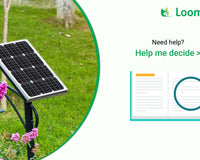

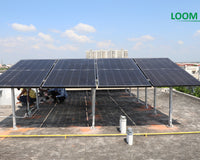
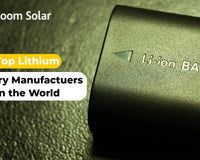
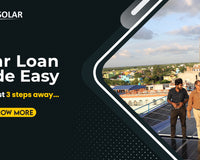


1 comment
Gwen
I’ve always believed in hiring local when it comes to home repairs. Looking for roofing businesses near me helped me find a team that understood the area’s unique challenges. Their service was fast, courteous, and affordable, which is hard to come by these days.